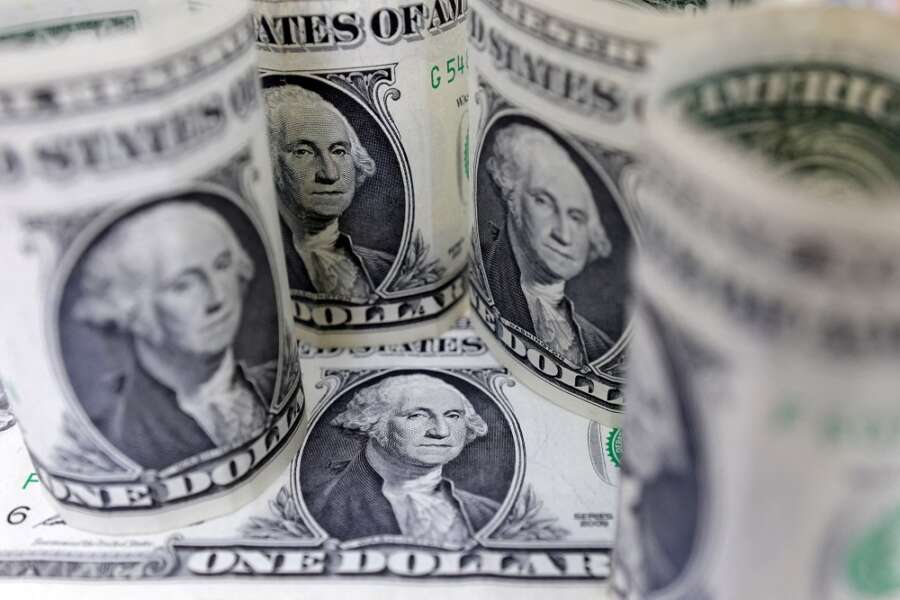By Samuel Indyk and Rae Wee
LONDON (Reuters) – The euro rose on Monday after unexpectedly high Spanish inflation data raised expectations for a higher euro area print on Wednesday, while the dollar languished near an eight-month low ahead of a slew of central bank meetings this week.
The euro climbed 0.2% to $1.0891 after data showing Spain’s consumer prices rose 5.8% in January compared with the same month last year, faster than the 5.7% on-year rise recorded in December and the first increase since last July.
“Today’s data will underline expectations for a 50 basis point hike from the ECB on Thursday and also signal that rates will be moved further up,” said Niels Christensen, chief analyst at Nordea.
The U.S. dollar index, which measures the currency against a basket of its peers including the euro, was little changed at 101.88, having hit an eight-month low of 101.50 last week.
It was down more than 1.6% in January and on track for a fourth consecutive monthly loss, pressured by expectations that the Fed is nearing the end of its rate-hike cycle and that interest rates would not have to rise as high as previously feared.
Movements were still relatively subdued ahead of policy meetings at the Fed, the European Central Bank (ECB) and the Bank of England (BoE) later this week.
“The euro has moved higher after the Spanish CPI data, but there’s also risk-off sentiment which should be slightly positive for the dollar,” Nordea’s Christensen said, noting that equity futures were lower in the U.S. and Europe.
“I don’t expect euro-dollar to break higher today or tomorrow ahead of the Fed and ECB,” Christensen added.
The Fed is widely expected to deliver a 25 basis-point rate hike – a shift down from its 50bp and 75bp increases last year – while market watchers say the BoE and ECB are likely to raise rates by 50bps each.
The euro, which is headed for a near 1.7% monthly gain, has drawn support from continued hawkish rhetoric by ECB policymakers and ebbing fears of a deep recession in the euro zone.
Elsewhere, the yen fell 0.3% to 130.195 per dollar after Bank of Japan governor Haruhiko Kuroda on Monday said the central bank must continue its easy policy.
The Australian dollar fell 0.5% to $0.7071 but was on track for a monthly gain of nearly 4%, after Australia’s inflation rate shot to a 33-year high last quarter, causing traders to ramp up bets that the Reserve Bank of Australia will have to tighten interest rates further.
With China returning from its Lunar New Year holiday, focus will be on the upcoming release of its purchasing managers’ index (PMI) data on Tuesday.
“So far, the data coming from China, or the vibes coming from China, do play to the view that a good reopening in terms of activity is likely to unfold,” said Rodrigo Catril, a currency strategist at National Australia Bank.
The onshore yuan jumped against the dollar on Monday, rising roughly 0.5% to 6.7425, as investors cheered signs of economic recovery indicated by robust holiday spending and tourism data.
(Reporting by Samuel Indyk and Susan Mathew in London and Rae Wee in Singapore; Editing by Bradley Perrett, Christopher Cushing and Hugh Lawson)
